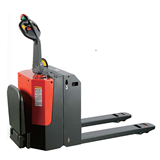The technology, which enables trains to 'talk' to road vehicles, is based on GPS and on 'Dedicated Short-Range Communication' technology that meets global vehicular communication standards.
The system will extend driver 'vision' up to one kilometre in all directions, enabling road vehicles to receive warning of approaching trains. The warnings comprise six-levels of in-car audio-visual alerts that escalate in urgency and volume as trains approach.
Director of the Centre for Technology Infusion, Professor Jack Singh, said the technology underwent a limited trial in Melbourne last year, with eight trains involved over six-weeks.
By contrast, the Queensland Government’s trial will involve a larger number of trains, as well as heavy and commercial vehicles, over a six-month period.
Professor Brian McGaw, Executive Dean, Faculty of Science, Technology and Engineering said the announcement of the Queensland government trial means that La Trobe’s project is now going national and increasing in scale.
"The project will greatly benefit driving safety in Australia. As a leading Australian technology and underpinned by Australian expertise, there is the added benefit of export potential," Professor McGaw said.
Professor Keith Nugent, Deputy Vice-Chancellor (Research), said La Trobe University was delighted to be involved in the project as it fulfilled the key mission of the University to make a difference in the community.
With around 9,500 level crossings on Australian roads, technology that can alert drivers to approaching trains is of considerable benefit at those crossings which have no flashing lights or boom barriers – approximately two thirds of all level crossings in Australia.
Professor Jack Singh explained the benefits of the technology extended well beyond improving level crossing safety.
"Collision warning systems including Cooperative Intelligent Transport Systems technology have been hailed by the motor vehicle industry as the next area of major road safety innovation, following in the footsteps of seat belts, airbags and ABS systems to save lives on the roads," Professor Singh said.



-160x160-state_article-rel-cat.png)



-160x160-state_article-rel-cat.png)








-160x160-state_article-rel-cat.png)






